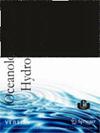Use of Biomonitoring Tools to Detect Water Quality-Dependent Ecosystem (Macroinvertebrate) Responses in Lentic Systems: The Examples of Lakes İznik and Manyas, Türkiye
IF 1
4区 环境科学与生态学
Q4 OCEANOGRAPHY
引用次数: 0
Abstract
Abstract Lakes İznik and Manyas located in Türkiye are important biodiversity resources in the Palearctic region. No studies to date have explored the ecological statuses of these lakes together with their water quality based on biotic indices utilizing benthic macroinvertebrates. In this study, some parameters listed in the SWQMR of Türkiye were measured to determine the ecological quality of the lakes. Biotic indices included in the WFD and bacteriological parameters in terms of human health were also evaluated for these lakes. Sampling was performed at 6 stations in 2018-2019. Results for the zoobenthic community structure indicate that Lake İznik has started to become organically polluted and Lake Manyas is more polluted. Also, the biological index results for Lake İznik also show that the lake water quality has started to decrease and that pollution conditions have occurred, pointing to class III water quality. It is clear that there is pollution pressure in Lake İznik. However, according to the results, the macrozoobenthic community structure, diversity, and water quality of Lake İznik seem to be better than those of Lake Manyas. According to the results of the water qualities in the lakes, precautions should be taken to eliminate the negative pressures seen in both lakes.使用生物监测工具检测水体系统中依赖水质的生态系统(大型无脊椎动物)响应:湖泊İznik和Manyas的例子, rkiye
摘要土耳其的伊兹尼克湖和马尼亚斯湖是古北极地区重要的生物多样性资源。迄今为止,没有任何研究基于利用底栖大型无脊椎动物的生物指数来探讨这些湖泊的生态状况及其水质。在这项研究中,测量了土耳其SWQMR中列出的一些参数,以确定湖泊的生态质量。WFD中包括的生物指数和人类健康方面的细菌学参数也对这些湖泊进行了评估。2018-2019年在6个站点进行了采样。底栖动物群落结构的结果表明,伊兹尼克湖已开始受到有机污染,而马尼亚斯湖的污染更严重。此外,伊兹尼克湖的生物指数结果也表明,该湖的水质已经开始下降,污染状况已经出现,水质为III级。很明显,伊兹尼克湖存在污染压力。然而,根据研究结果,伊兹尼克湖的大型底栖动物群落结构、多样性和水质似乎优于马尼亚斯湖。根据湖泊水质的结果,应该采取预防措施来消除两个湖泊中出现的负压。
本文章由计算机程序翻译,如有差异,请以英文原文为准。
求助全文
约1分钟内获得全文
求助全文
来源期刊
CiteScore
1.70
自引率
11.10%
发文量
8
审稿时长
>12 weeks
期刊介绍:
Oceanological and Hydrobiological Studies is an international journal published by the Institute of Oceanography, University of Gdańsk in Poland. The journal has 4 issues per year and contains papers on all aspects of the marine environment and hydrobiology. All manuscripts are reviewed by editors and independent experts. Based on the referees'' recommendations, the Editor will make a decision on whether to accept a contribution. All articles are published in English. The journal is open to all matters concerning the water environment, thus providing the readers with a wide spectrum of topics in every issue.

 求助内容:
求助内容: 应助结果提醒方式:
应助结果提醒方式:


